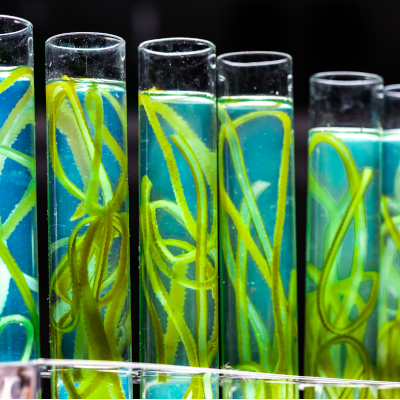As established by a recent census based on biomass, plants (primarily land plants) account for 80 percent of the earth’s total biomass. From the food we eat and the clothes we wear, to the medications that keep us alive and thriving, plants play a crucial role. 
Since the start of the COVID-19 pandemic there has been a race to get vaccines out at “warp speed.” Typically, it takes 4-6 months to produce a clinical grade vaccine using the traditional egg and cell-based production methods. Now, imagine creating a clinical grade vaccine in 5-6 weeks! This is where plants come in.
Plant-derived vaccine technology is not new. Research and testing on plants for vaccine for vaccine production have been in the works for the last 30 years. Scientists have tried corn, potatoes, rice, spinach and other plants to produce vaccines to help fight dengue, malaria, the plague and polio. Unfortunately, the studies have never made it through to end stage clinical trials, perhaps due to skepticism around investing in fledgling biotechnology and a non-existent framework for regulations on plant-derived medications.
Fast forward to Feb. 25, 2022: Canada has approved the world’s first plant-derived vaccine for COVID-19. Medicago, a pharmaceutical company based in Quebec, is behind this plant produced poke. Using Nicotiana benthamiana, the Australian cousin of the tobacco plant and a particular group of agrobacteria, they were able to transform these plants into mini bioreactors to create millions of copies of virus-like particles that play the part of antigens.
Besides the production speed, another advantage of plant-derived vaccines is the ability to remain thermally stable. Unlike the current COVID-19 vaccines, plant-derived vaccines do not have to be stocked in ultra-low temperature
freezers (-5 to -13 degrees Fahrenheit for the Pfizer vaccine). According to a press release, the Medicago vaccines could be stored at average refrigerator temperatures. This makes it much easier for global distribution, especially to very rural areas where it’s more challenging to maintain freezing temperatures.
Another advantage of plant-derived vaccines is the ability to mass produce vaccines at a much lower cost than conventional vaccines. Remember those “mini bioreactors” I mentioned? Those plants do the work of a big mechanical bioreactor at a fraction of the cost, without the specialized personnel to manage them and without the need for a sterile environment.
John Tregoning, an infectious diseases researcher at the UK’s Imperial University, said, “We have seen in COVID-19 that there isn’t enough manufacturing capacity globally to make vaccines for everyone.” The U.S. Department of Defense estimated that it costs $1.5 billion to manage a facility that makes only three vaccines for 25 years.
According to Reuters, stats on the Medicago plant-derived COVID-19 vaccine show that the vaccine is 75.3 percent effective against the delta variant of the virus and 71 percent effective against all coronavirus variants except omicron (not prevalent at the time of the study). Most side effects reported were relatively mild and included fatigue and fever.
Plant-derived vaccine technology is becoming commercially viable. Vaccines are the foundation of public health, so I hope this technology offers people another option for staying healthy and improving our current pandemic situation. The future of biotechnology is bright and plants will lead the way! So what do you say? Willing to give plants a chance?
The post Rooting for plant-derived vaccines appeared first on 3M Inside Angle..


